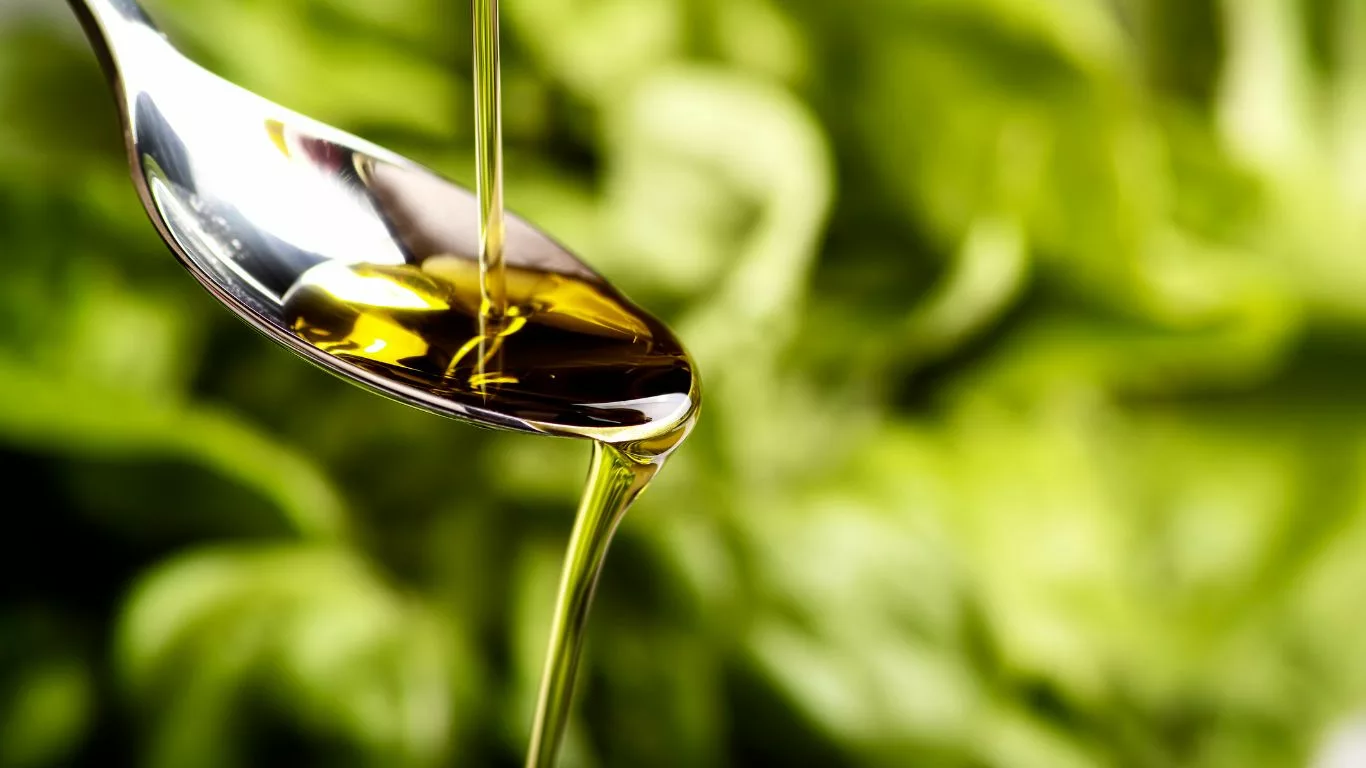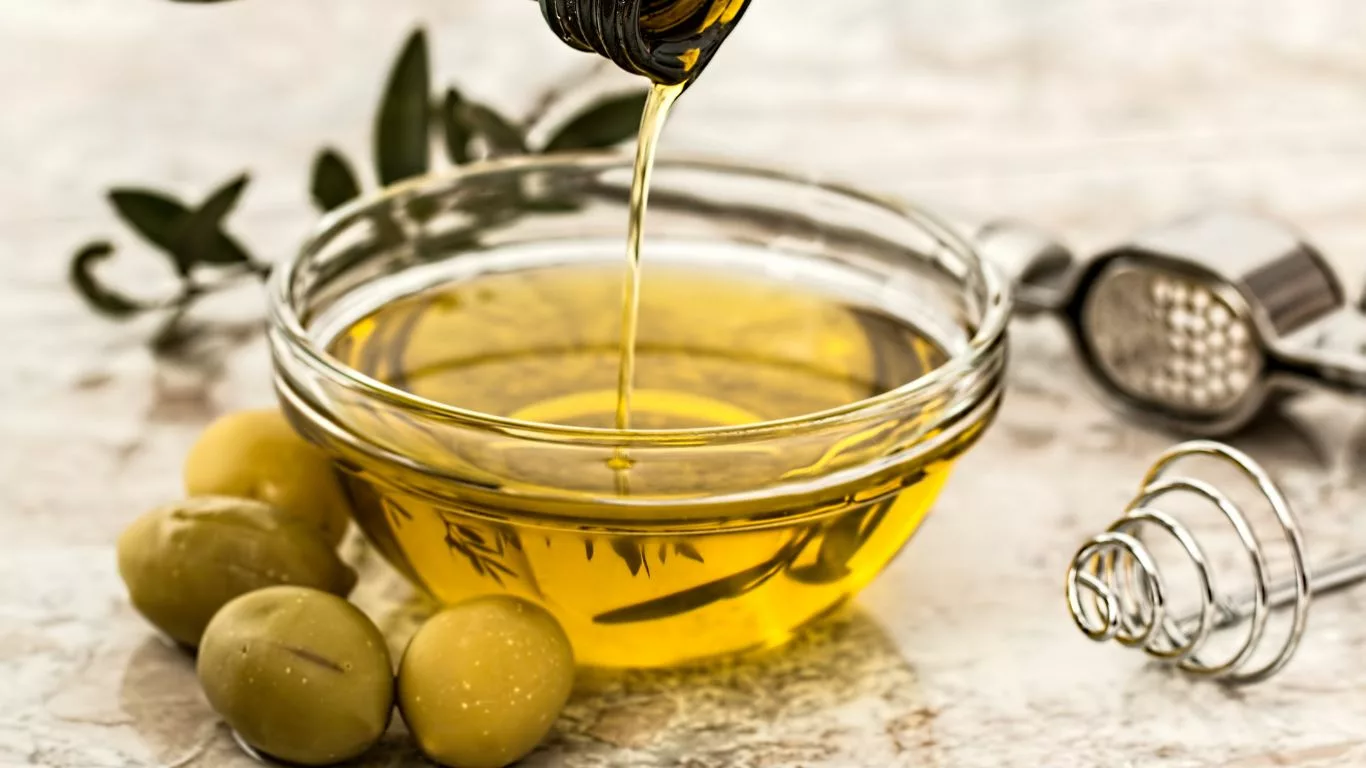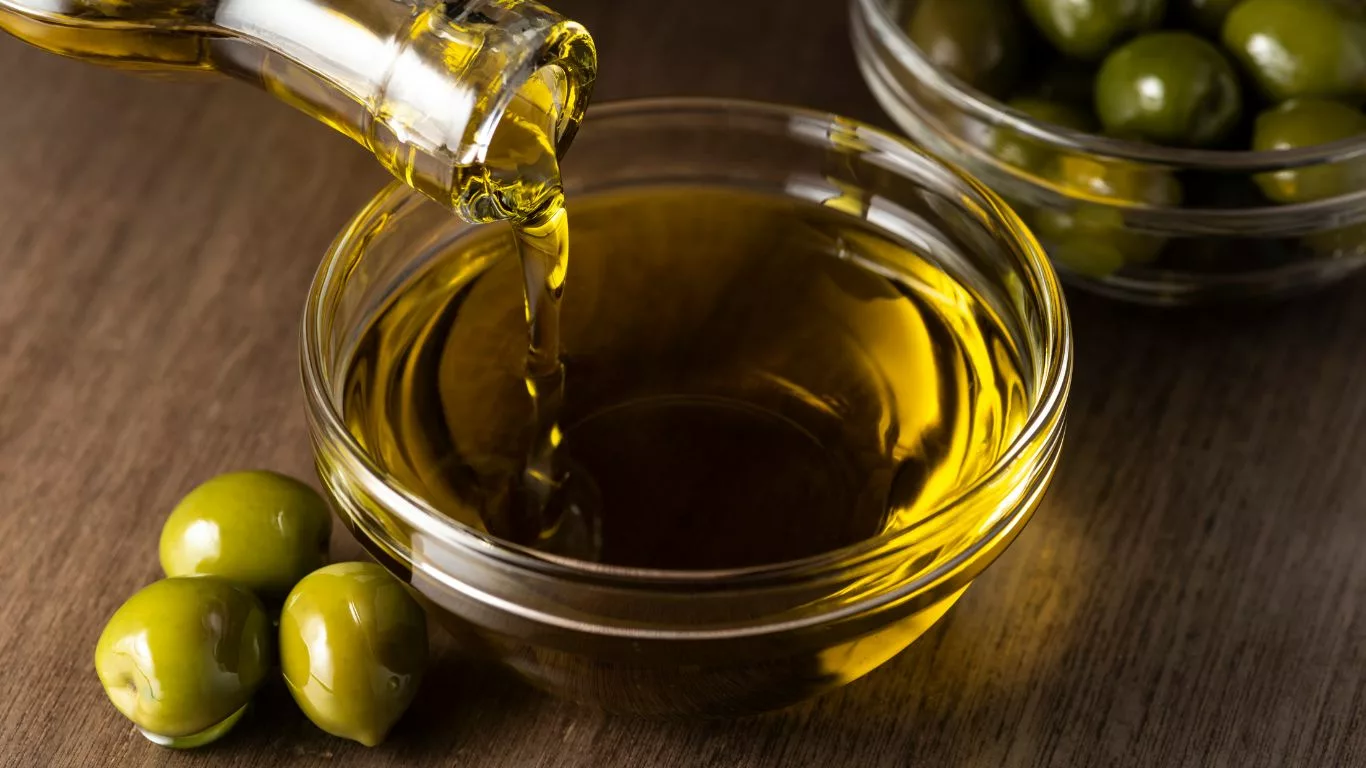Can Olive Oil Help with Acid Reflux? – Nature’s Digestive Aid
Discover the potential benefits of olive oil for acid reflux relief. Learn how to use it effectively and considerations to keep in mind in our comprehensive guide.
Acid reflux, characterized by heartburn and discomfort, can disrupt daily life. While medications and lifestyle changes are often recommended, natural remedies like olive oil are gaining attention for their potential to alleviate symptoms. In this detailed guide, we’ll delve into the effectiveness of olive oil in managing acid reflux, offering insights into its usage and important considerations.

How Can Olive Oil Help with Acid Reflux?
Olive oil, derived from pressing olives, is renowned for its health benefits, particularly its high content of monounsaturated fats and antioxidants. Beyond its culinary uses, olive oil may offer relief from acid reflux symptoms through various mechanisms.
Coating Effect
Olive oil possesses a viscous nature that can coat the esophagus and stomach lining, potentially providing a protective barrier against stomach acid. This coating effect may help reduce irritation and inflammation, leading to decreased discomfort associated with acid reflux.
Anti-inflammatory Properties
Rich in antioxidants and compounds like oleic acid, olive oil exhibits anti-inflammatory properties that could help alleviate inflammation in the gastrointestinal tract. By reducing inflammation, olive oil may contribute to easing acid reflux symptoms and promoting overall digestive health.

How to Incorporate Olive Oil into Your Acid Reflux Management Plan
Adding olive oil to your diet as part of an acid reflux management strategy can be simple and beneficial. Here are some tips for incorporating olive oil effectively:
Use as a Salad Dressing
Drizzling olive oil over salads or using it as a base for homemade salad dressings is a delicious way to incorporate it into your diet. Opt for extra virgin olive oil for maximum health benefits and flavor.
Include in Cooking
Cooking with olive oil adds depth and richness to various dishes while imparting its healthful properties. Use it for sautéing vegetables, marinating proteins, or drizzling over cooked grains for added flavor and nutrition.
Consume Raw
Consuming a tablespoon of extra virgin olive oil on its own, preferably in the morning on an empty stomach, is a common practice in some cultures. This simple ritual may help soothe the digestive tract and promote overall digestive health.

Considerations and Precautions
While olive oil shows promise as a natural remedy for acid reflux, it’s essential to approach its consumption with certain considerations in mind:
Quality Matters
Opt for high-quality, extra virgin olive oil, as it retains more antioxidants and beneficial compounds compared to refined varieties. Look for reputable brands and check for certifications indicating quality standards.
Monitor Portions
While olive oil offers health benefits, it is calorie-dense. Consuming excessive amounts may lead to weight gain and other health issues. Stick to moderate portions, typically one to two tablespoons per day, as part of a balanced diet.
Individual Sensitivities
While most individuals tolerate olive oil well, some people may experience digestive discomfort or allergic reactions. If you have a known sensitivity to olives or olive oil, use caution and consult with a healthcare professional before incorporating it into your diet.

Conclusion
Incorporating olive oil into your diet may offer a natural and flavorful approach to managing acid reflux symptoms. With its coating effect, anti-inflammatory properties, and culinary versatility, olive oil stands out as a promising addition to a holistic acid reflux management plan. However, it’s crucial to choose high-quality olive oil, monitor portions, and consider individual sensitivities when integrating it into your diet.
By embracing the potential benefits of olive oil alongside other dietary modifications and lifestyle changes, individuals with acid reflux can take proactive steps toward better digestive health and improved overall well-being.
Appendices
References
For further exploration of the topic of using olive oil for managing acid reflux symptoms, consider reviewing the following references:
- López-García, C., López-Fandiño, R., & Recio, I. (2018). Antibacterial Activity of Oleuropein and its Cleavage Products. Journal of the Science of Food and Agriculture, 98(7), 2393-2399. Read Article
- Cicerale, S., Lucas, L. J., & Keast, R. S. (2012). Biological Activities of Phenolic Compounds Present in Virgin Olive Oil. International Journal of Molecular Sciences, 13(12), 1730-1745. Read Article
- Gutiérrez-Grijalva, E. P., Picos-Salas, M. A., Leyva-López, N., & Criollo-Mendoza, M. S. (2018). Nutritional and Health Benefits of Olive Oil Phenols. Food Research International, 105, 380-399. Read Article
- Burnett, A. J., & Lawrence, P. (2019). Review Article: Role of Diet in the Management of Gastroesophageal Reflux Disease. Asia Pacific Journal of Clinical Nutrition, 28(2), 309-313. Read Article
FAQs
Here are some frequently asked questions about incorporating olive oil into an acid reflux management plan:
- Is olive oil safe for individuals with acid reflux? Olive oil is generally considered safe for most individuals with acid reflux. However, some people may experience digestive discomfort or allergic reactions. It’s advisable to start with small amounts and monitor how your body responds.
- How much olive oil should I consume daily for acid reflux relief? The recommended daily intake of olive oil typically ranges from one to two tablespoons. Consuming excessive amounts may lead to weight gain and other health issues, so it’s best to use it in moderation as part of a balanced diet.
- Can olive oil alone cure acid reflux? While olive oil may help alleviate acid reflux symptoms for some individuals, it’s not a cure for the condition. It’s most effective when combined with other dietary modifications, lifestyle changes, and potentially medication, depending on the severity of symptoms.
Related Table
Here’s a summary table of key information regarding the usage of olive oil for managing acid reflux:
| Aspect | Information |
|---|---|
| Recommended Daily Intake | 1-2 tablespoons |
| Benefits | Coating effect, anti-inflammatory properties |
| Precautions | Choose high-quality extra virgin olive oil, monitor portions, consider individual sensitivities |
Note: Individual responses to olive oil may vary, and it’s important to seek personalized advice from a healthcare provider.
Disclaimer: The information provided in this article is for educational and informational purposes only. It is not intended to be a substitute for professional medical advice, diagnosis, or treatment. Always seek the advice of your physician or other qualified health provider with any questions you may have regarding a medical condition. Never disregard professional medical advice or delay in seeking it because of something you have read in this article. Reliance on any information provided in this article is solely at your own risk.

Camellia Wulansari is a dedicated Medical Assistant at a local clinic and a passionate health writer at Healthusias.com. With years of hands-on experience in patient care and a deep interest in preventive medicine, she bridges the gap between clinical knowledge and accessible health information. Camellia specializes in writing about digestive health, chronic conditions like GERD and hypertension, respiratory issues, and autoimmune diseases, aiming to empower readers with practical, easy-to-understand insights. When she’s not assisting patients or writing, you’ll find her enjoying quiet mornings with coffee and a medical journal in hand—or jamming to her favorite metal band, Lamb of God.







